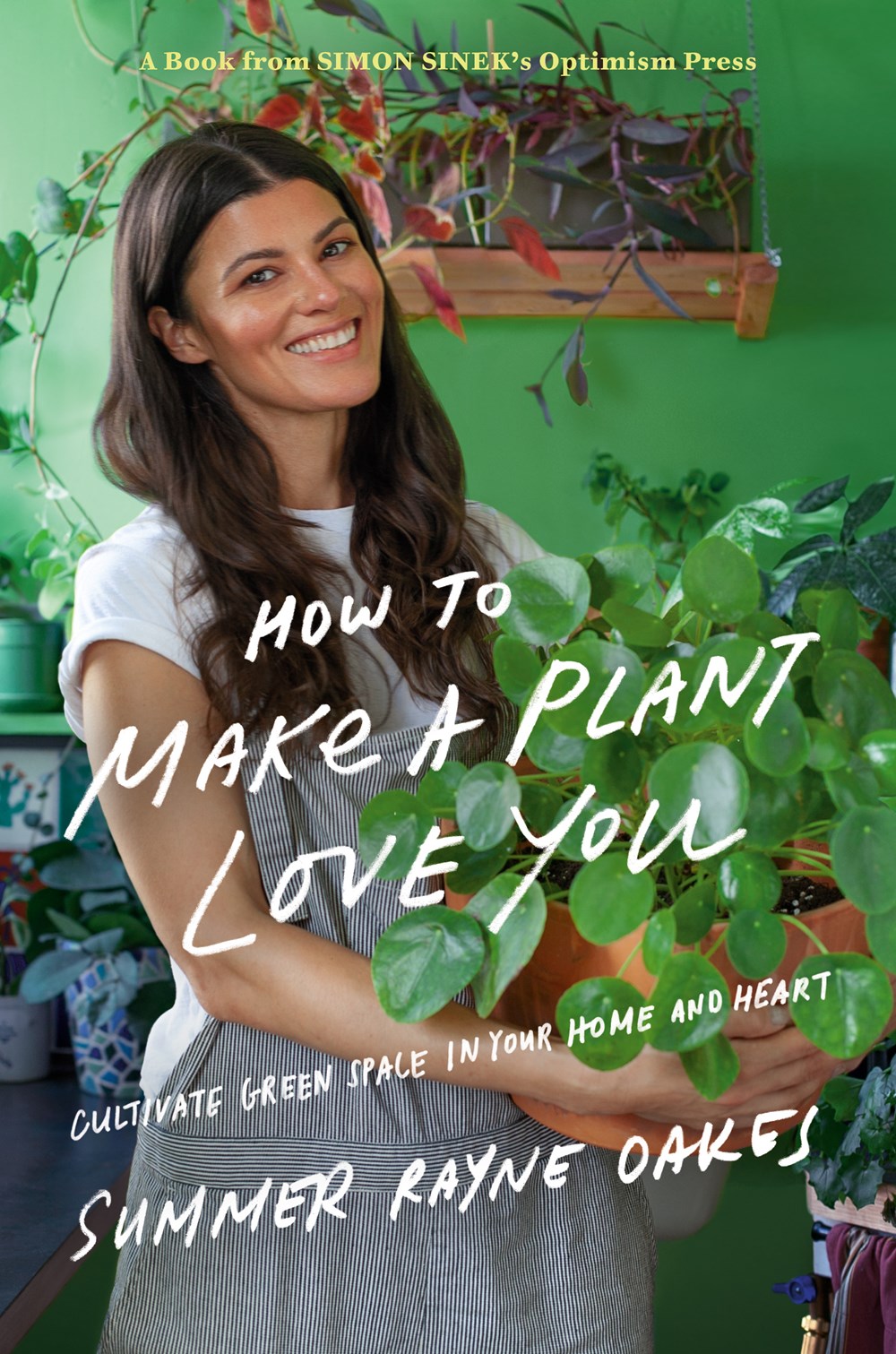How to Make a Plant Love You: Cultivate Green Space in Your Home and Heart
July 09, 2019
Gabbi reviews a book that teaches us how plants and people aren't so different.

“How to” books have expanded beyond business, and How to Make a Plant Love You: Cultivate Green Space in Your Home and Heart by Summer Rayne Oakes is a good example of this changing genre. Oakes is certifiably Instafamous, a YouTuber, a blogger, a model, but these arguably superficial channels give an extensive set of tools to a passionate and creative environmental scientist like Oakes. Her book provides a hopeful look at a society that treats plants and people equally and empathetically.
How to Make a Plant Love You is sensitive, sensible, and self-aware. Oakes appears to be the quintessential millennial hipster that many people may roll their eyes at, but the information she shares goes deeper than anyone might imagine a skinny book about plant care could go. And keeping in mind that “[n]early a third of houseplant sales are driven by Millenials,” (105) Oakes knows her audience and wisely writes for them and their apartment-dwelling problems and short attention spans. (I am very grateful to her for this.)
Every chapter of How to Make a Plant Love You ends with reflective questions and exercises, which were helpful in changing my mindset of plants from entities to individuals. For example:
“Ask where your plant is from: Once you’ve learned the plant’s name, do a little more research on it and see where it originates and in what kind of ecosystem it lives. What can you deduce from that? (E.g., a plant that grows in the understories of the tropical forests of Ecuador may be tolerant of lower light conditions.)”
While it’s easy to imagine Facebook stalking a new coworker or friend to find out where they’re from and what they’re interested in, exploring a plant’s past seems peculiar at first. But Oakes writes about plants with more empathy than most people have towards other people, and even addresses this division several times throughout the book. In one chapter, she compares how different languages may not treat plants as objects; Ojibwe, for example, uses the same word ending for people as for plants. Oakes includes surprising examples like these that require the reader to think about plants in ways they likely wouldn’t if they were just mindlessly watering an aloe vera on a windowsill.
The book also incorporates quotes from everyday people whose lives have been improved by owning houseplants. Managing anxiety, decreasing stress, and making friends are just a few outcomes of owning plants that are highlighted in the quotes Oakes interposes between the paragraphs and after chapter titles. "Cole A." tell us:
“There is something so therapeutic about making things grow and helping plants thrive.”
As someone not involved in the online plant parent community, reading the honest testaments to how a plant has changed an ordinary person’s life was very motivational. I’m interested in exploring more of Oakes’s online material in order to feel more confident in any of my future plant owning endeavors (of which I’m now sure there will be many).
Keeping a plant alive is more complex than giving it water and light is an important takeaway from the book. And the same is true about keeping any social relationship alive.
Oakes very successfully uses the process of caring for a plant to reframe feeling concern for others. Her advice can be applied to one's personal life, professional life, and obviously, crazy-plant-lady life. All of which we can achieve. There are so many plants to learn about and, maybe someday, care for. May we begin filling our voids with green plants rather than plastic packages.



